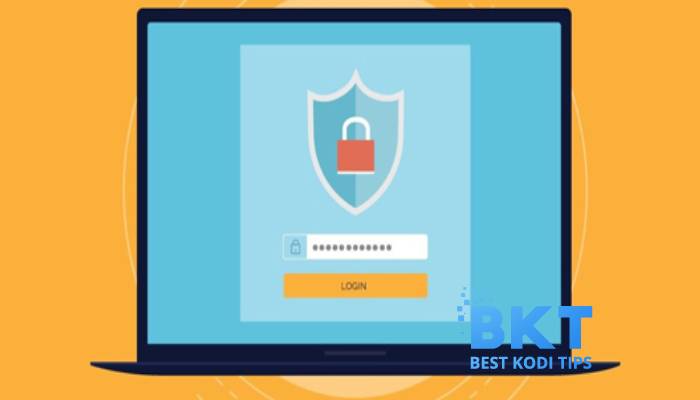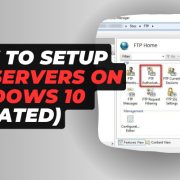Can we imagine a world without the internet?
No! Not in the modern digital age that we live in.
The internet era has progressed so much from the late 1990s, during which it was invented.
Nowadays, downloading a movie takes a couple of minutes; you can virtually see and talk with others even if they’re on the opposite side of the world, and almost everything about your personal and official lives is on the internet.
But, take a step back and think about it.
How is the data and information that belongs to you kept separated from others?
All the online services out there provide you with a personal account.
And how is this personal account protected?
Using a password.
Studies show that an average internet user has about 100 online accounts, each obviously with its own password.
And do you know what the most commonly used password is?
A simple online search will tell you that even in 2021, as digitally modern as we are, “123456” is the most commonly used password phrase out there!
Over 2.5 million people have “123456” as their password.
Well, passwords might be weak, but the digital cybersecurity game is strong, right?
No!
A study conducted at the University of Maryland found that there is a hacking attempt every 39 seconds!
According to IBM, the average cost of cyber data breaches is $4.42 million.
Want more?
About 95 per cent of all successful attacks happen due to human error.
So, what’s the solution to all this mess?
Creating strong passwords, of course!
Why is it Important to Use a Strong Password in Creating Online Accounts?
Why are passwords considered so important for internet safety?
Let us look at the top 3 reasons.
1. First Line of Defense:
Passwords are the first line of defence to any of your online accounts. If your online account password is weak, it gives hackers a hard time decoding the password, and thus your account remains safe from most of the common hacking techniques.
2. Stronger Passwords are Harder to Decode:
In modern database systems, your passwords aren’t stored as plain text. This means that if you set a password as “123456”, it is not stored as it is. Instead, encryption algorithms are run on the passwords, which converts the password to a masked string of characters.
However, hackers already must have spent enough time to decode the commonly used passwords such as “123456”, “password”, etc.
So, when they try to hack your account, they will easily know if you are using a simple password.
On the other hand, if your password text is complex enough, then there is no way that hackers can decode your plain password text from its encrypted form.
Thus, hacking techniques such as dictionary attacks, brute force attacks, etc., won’t be effective on your account.
3. Stronger Passwords are Harder to Snoop:
“Password snooping” happens when an individual or a computer program can see or mimic the password you’re entering.
A simple example would be the precaution you take while entering your debit card PIN at an ATM. You would definitely make sure that there is no one else watching you entering the PIN.
Similarly, a stronger password would make it really difficult for any person or computer program to interpret the actual password that you’re typing in.
What Advices are Given for Developing Strong Passwords?
Now, what is some of the best advice to develop a strong password?
Below are some points that you should definitely not forget while creating a password.
- Don’t Include Your Personal Information:
Never include personal details such as your name, date of birth, spouse’s name, etc., while creating a password.
If a hacker already has access to your personal details, it gives them an easy way to guess your password. - Always Use All the Allowed Characters:
The most effective way to create a strong password is to use all the allowed characters.
While creating an online account password, you can use letters, numbers, symbols, etc.
Make sure that your password phrase is a combination of all these allowed characters. Also, using both upper and lower case letters is another great way to create secure passwords. - Never Reuse the Passwords:
It would be best if you never reuse the same password across multiple accounts.
The reason for this is that once a hacker successfully hacks one of your online account passwords, they’ll definitely try to hack your other accounts using the same password.
If you reuse the same password across multiple accounts, then a single successful password hack can give the hacker access to all your accounts at once.
How Do You Create Strong & Unique Passwords?
Creating strong and unique passwords isn’t easy. Even if you follow the advice above, it can be not easy.
To help you out, below are two of the easiest ways to create strong, unique passwords for your internet safety.
- Use a Password Generator Tool:
There are several password generator tools available out there that create completely random, strong, and unique passwords with just a single mouse click.
These tools utilize computer algorithms to generate a random combination of letters, numbers, and characters to create a strong, unique password. - Use Complex Words/Sentences:
If you have a strong vocabulary game, using some tough words is easy to generate a strong password.
How awesome would it be if your online banking password was something like “FloccinaucINIhilipilificaTION@#!1987”?
Yes, the above password contains a word that is present in the English vocabulary. But, the combination of upper/lower case letters, special symbols, and numbers definitely make the password hard to crack, especially post encryption.
What Apart from Strong Passwords Can You Do for Internet Safety?
A strong password is the best way to secure your online accounts.
But what else can be done?
Implementing Two-Factor Authentication (2FA) is a great way to implement additional account safety.
Moreover, it would help if you also changed your account passwords at least once or twice a year to keep it extra-safe.
Finally, it would be best if you always were updated about the most common cybersecurity threats and hacking techniques to stay safe from them at all costs.















Comments